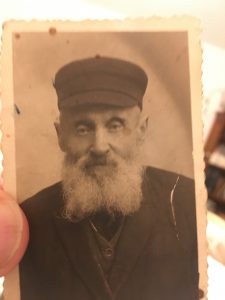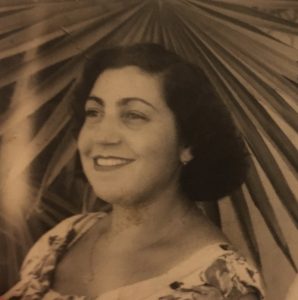I was interviewing someone about life in Jewish refugee camps after WWII and he mentioned something that floored me: refugees who survived concentration camps were looked down upon by those who survived by hiding, being partisans, or fleeing to the Soviet Union (and usually ending up in gulags). That bit of cultural info gave me context as to why my parents, who had close friends who survived concentration camps, would sometimes throw around the WWII-created Yiddish word kahtsetniker (concentration camp internee).
Everybody in those DP camps had suffered through horrors during WWII. Why would a community develop an ad-hoc pecking order that put those who suffered the most at the bottom?
As a child, I remember my parents experiencing a similar kind of cruelty in America. Many American-born Jews, geller (yellow ones, like ripe bananas) in Yiddish, wanted nothing to do with greener (green ones), Holocaust survivors. It was a strange psychology at work. Some viewed people like my parents, with their heavy accents and Old World ways, a threat to their hard won acceptance in American society. Others believed that survivors lived through the war only because they must have made contemptible compromises and sacrificed others (someone actually told me this when I was a kid and they were driving me and their son to the movies; I couldn’t wait to get out of the car). At least a few geller viewed my parents and their survivor friends like they were something out of a horror movie; they had the stain of death on them and these geller acted like it was contagious.
The pecking order Jews in Milwaukee created wasn’t universally accepted, but my parents were very aware of its existence. The lack of acceptance they experienced from geller when they arrived in America influenced who they chose for friends for the rest of their lives. They developed an outright antagonism toward American-born Jews, so much so that the worst insult they could throw my way was to say, in Yiddish, that I was acting like someone American born. It meant I was being lazy/phony/soft/insecure/dishonest/snobbish, take your pick.
Black Americans exhibit similar internal cruelty by discriminating against those with the darkest skin. Ashkenazi Israelis, generally of light skin, discriminate against Sephardic Israelis. But visual cues aren’t necessary for humans to invent internal hierarchies.
For me, insecurity partly explains why Poland was and continues to be pervasively anti-Semitic. Poland lost its nationhood for over a century and then, after a brief time of independence, was abandoned by the West and put under the thumb of the Soviet Union for fifty years. During WWII, millions of non-Jewish Poles were murdered. Poland, with a history of humiliation and worse, needed to lash out to feel better about itself over those years. It chose an internal group for the focus of its enmity, its own Jews.
It’s, no doubt, infuriating to some Poles that Polish suffering during WWII and the Soviet era has never received attention on the world stage. Instead, it’s Polish Jews who survived the war that are subjects of sympathy in movies and books. The world’s indifference to Poland’s long history of pain likely fuels more anti-Semitism (and has fueled the rise of Poland’s dreadful Law and Justice Party). Humans have the capacity for kindness, certainly, but they are also innately cruel.
I’ll stop my tendency to dwell on the dark side of humanity and end on a positive note. Anecdotally, younger Poles seem relatively free of anti-Semitism. Younger Ashkenazi Israelis seem relatively free of hatred toward Sephardic Jews. Perhaps young adults have invented new ugly and arbitrary internal distinctions. But maybe humanity is ever so gradually becoming less inclined to act upon its insecurity in pervasively awful ways. Maybe.



Recent Comments